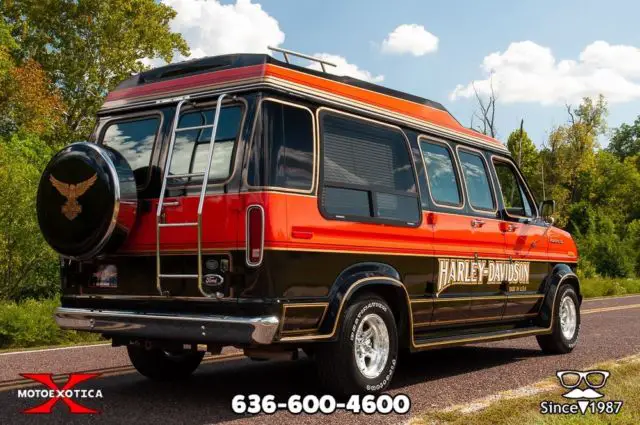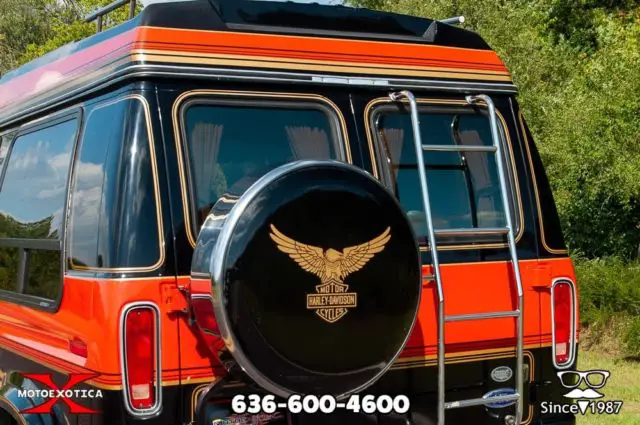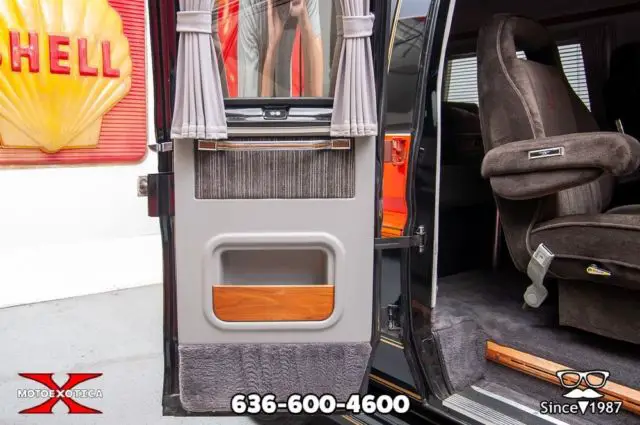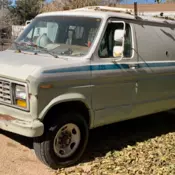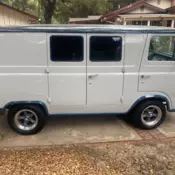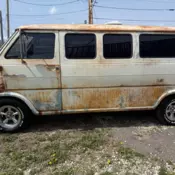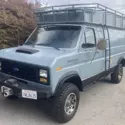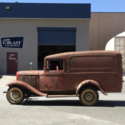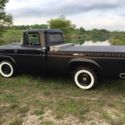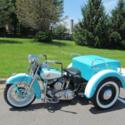1988 Ford Econoline Harley-Davidson Edition
| Make: | Other Makes |
| Model: | Other |
| SubModel: | Ford Econoline Harley-Davidson |
| Type: | Van |
| Trim: | Harley-Davidson Edition |
| Year: | 1988 |
| Mileage: | 58,312 |
| VIN: | 1FDEE14N5JHA43783 |
| Color: | Black/Orange |
| Engine: | 302 CID V-8 |
| Cylinders: | 8 |
| Transmission: | Four-speed Automatic |
| Drive type: | RWD |
| Interior color: | Charcoal Gray |
| Vehicle Title: | Clear |
| Item location: | Saint Louis, Missouri, United States |
1988 Other Makes Other Harley-Davidson Edition Additional Info:
1988 Ford Econoline Harley-Davidson Edition Description1988 Ford Econoline Harley-Davidson Edition
Official Harley-Davidson high-top conversion van only available to Harley dealers Nicest example left in existence, excellent for a Harley collector 302 CID fuel-injected V-8 Windsor engine AOD Four-speed automatic transmission Utilimaster factory conversion Black (946) and orange (3094) exterior with Harley-Davidson livery Charcoal cloth interior Air-conditioning, cruise control, power steering, power brakes, power locks and power windows CB radio and 5” TV 138-inch wheelbaseWe at MotoeXotica Classic Cars have a new rolling conversation piece, a 1988 Ford Econoline Harley-Davidson Edition Van. It left Ford’s Lorain, Ohio plant as an incomplete vehicle before it was sent to Utilimaster in Bristol, Indiana for conversion. These were Ford official high-top conversion vans only available to Harley dealers. This particular conversion took place between November 30 and December 8, 1987.
The black (code 946) and orange (code 3094) paint and graphics are in great condition for being 30 years old. The windows are intact and haze-free while the rectangular headlights and slim taillamps are in great order. The van’s bodywork is straight and solid.
The engine bay is in decent condition, while the cargo area is in great order. The chrome bumpers still shine brilliantly. This model rolls on Firestone Destination LE2 radials, size P235/75R15 at all four corners. Each wheel is wrapped around an Ultra chrome wheel. The tires and wheels are all in overall very good order.
Under the short hood is a Windsor 302 CID fuel-injected V-8 engine mated to Ford’s AOD four-speed automatic transmission. Driver convenience features include air-conditioning, cruise control, power steering, power brakes, power locks and power windows. The air conditioning operates but blows warm air only so it may need a recharge or service work.
Inside, the charcoal gray interior with wood accents and curtains is in overall great shape. The front buckets, middle captain chairs and rear bench seats all look great. The front seatbacks come with H-D embroidery. The matching gray carpet is in decent order while the light gray headliner looks great. The two-spoke steering wheel looks great, as does the instrument panel while the inner door liners are in satisfactory order. The van has a factory AM/FM stereo with cassette deck. A Citizens’ Band radio and a five-inch TV also come with the van.
Unlike its predecessors, Ford designed the 1975 Econoline with a true “two-box” layout. Similar to the Ford Transit of the time, the configuration moved the engine as far forward as possible and lower in the chassis than in its predecessor; although the hood was nearly twice as long, the hoodline was much lower. A higher degree of parts commonality with the F series made itself known in the bodystyling: the vent windows, taillights, bumpers, and wheels were common items between the two vehicles.
During its sixteen-year production run, the exterior of the Econoline/Club Wagon would remain almost unchanged. In 1978, the Super Van/Super Wagon was introduced; based on the 138-inch wheelbase, it was a rear body extension allowing for extra cargo room or an extra row of seating (for up to 15 passengers). In 1979, a minor facelift updated the grille design; round headlights were replaced by rectangular units. In 1983, the Ford Blue Oval was added to the grille, replacing the “FORD” lettering on the hood.
Inside, the redesign of the chassis expanded interior room, though the rear of the engine still remained between the front seats; an engine cover still provided access for servicing. Sharing many controls with the F series, the new design also improved interior ergonomics. In three body sizes, the Econoline was produced in a cargo van and passenger van, with the latter produced in three trim levels; base, Custom and Chateau. In addition, the Club Wagon was produced solely as a passenger van. After 1980, this was replaced by F-series nomenclature of XL and XLT. In line with the F series, the Econoline/Club Wagon was sold in 100/150/250/350 variants, with the Econoline 100 discontinued in 1983 (Club Wagon chassis variants were not denoted).
Competition to this Ford van in 1988 included Chevrolet’s G10 van, Dodge’s B150 van and GMC’s VanDura.
If you’re looking for a cool van to complement your Harleys, if you’re a Ford fan who likes special vehicles or if you just want to be the center of attention wherever you go, stop by MotoeXotica Classic Cars to check out this Ford/Harley conversion van.
VIN: 1FDEE14N5JHA43783
This car is currently located at our facility in St. Louis, Missouri. Current mileage on the odometer shows 58,312 miles. It is sold as is, where is, on a clean and clear, mileage exempt title. GET OUT AND DRIVE!!!
CLICK ON THIS LINK TO VIEW OUR YOUTUBE VIDEO!
Note: Please see full terms and conditions listed below that pertain to the purchase of any said vehicle, thank you.





